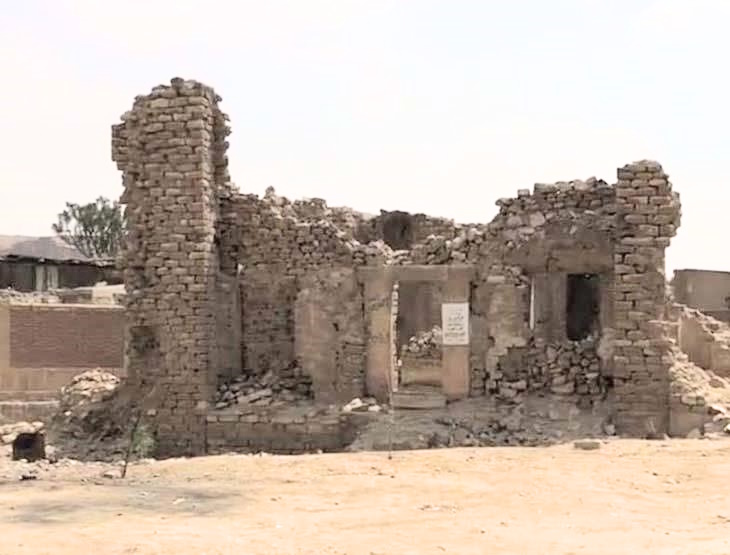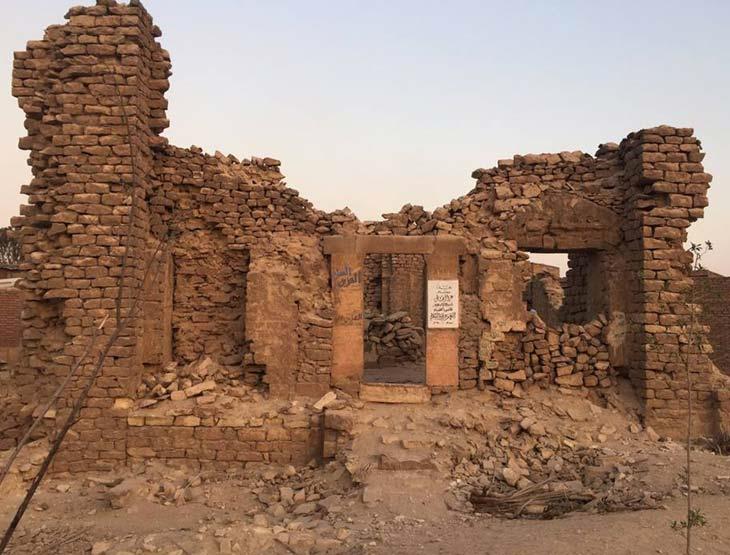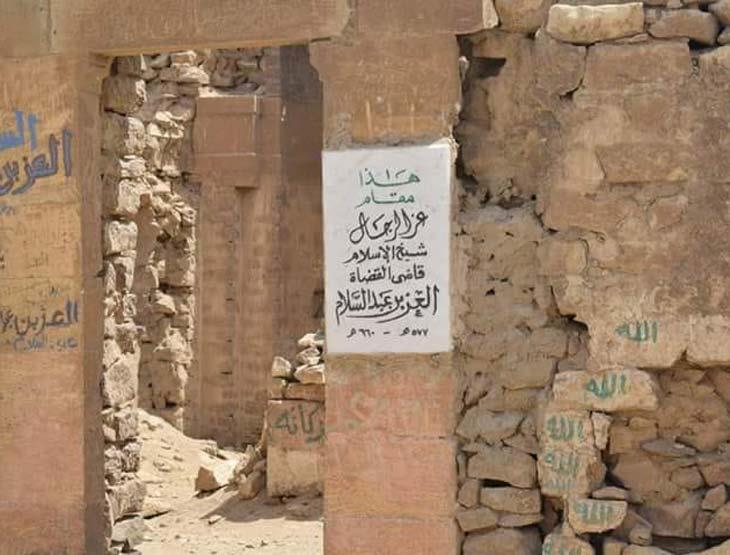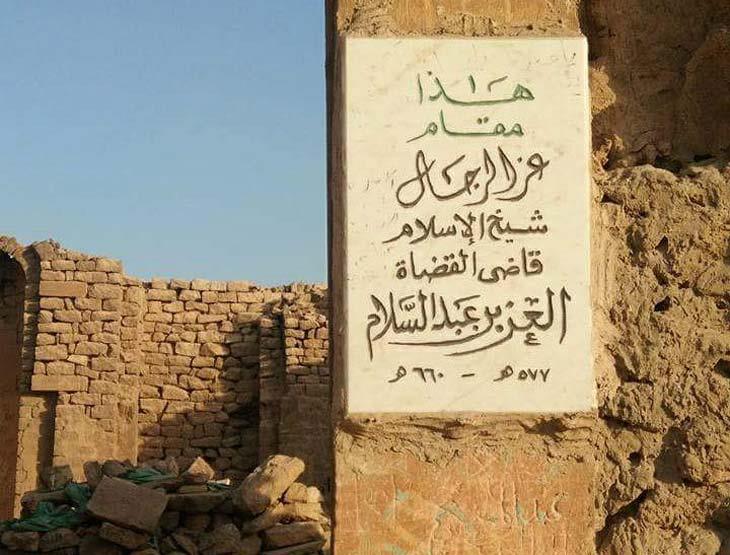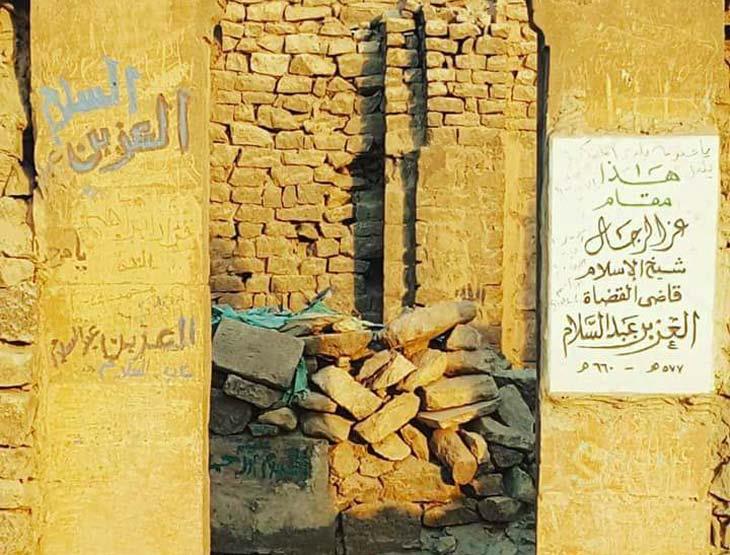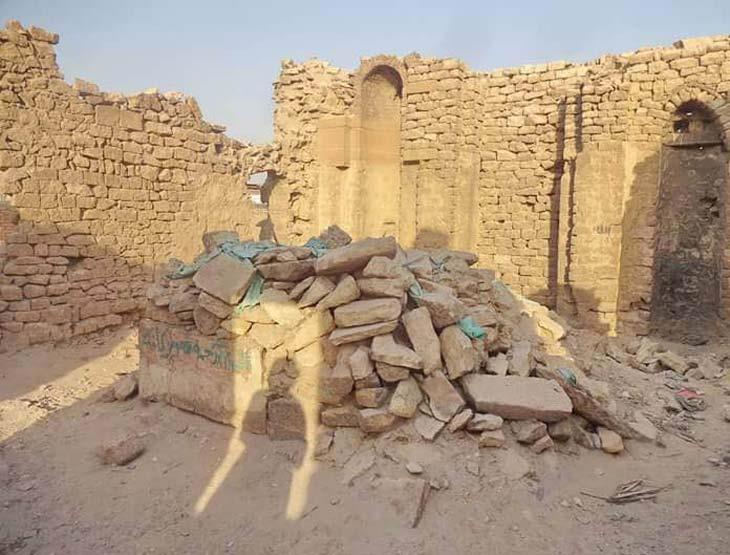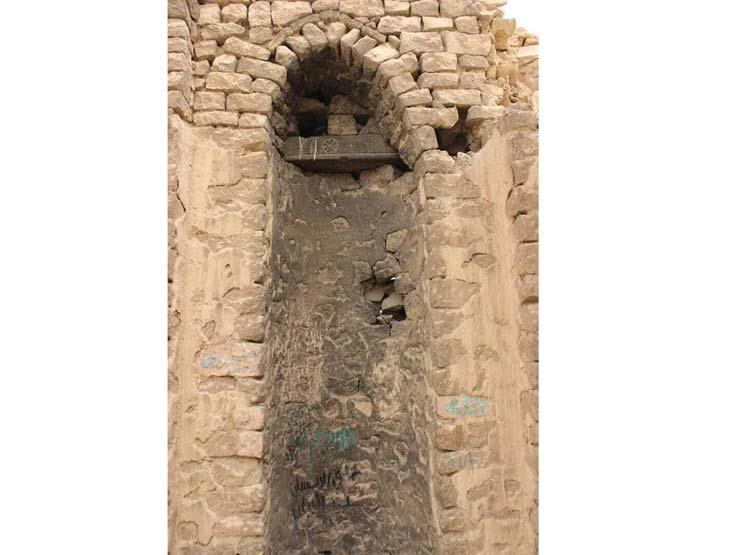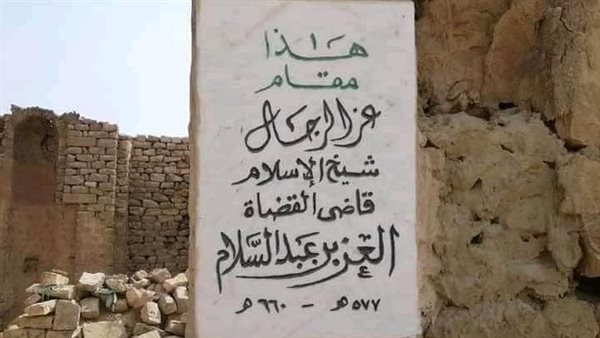Bio: Sh. Izz al-Din ibn ‘Abd al-Salam | سيدي عز الدين بن عبد السلام
Sh. Izz al-Din ibn 'Abd al-Salam
الشيخ عز الدين بن عبد السلامb. in Damascus 577 H. – d. 660 H. in Cairo, Egypt
radiya Allah anhu
﷽
Companion of Imam Abul Hasan al-Shadhili
English
From Durrat al-Asrar: ‘Izz al-Din and the pilprimage | page sscan
imamghazali.org
muslimheritage.com
wiki
gfh
His nickname is “Sultan of the Scholars.” The Shaykh al-Islam of his time, he took hadith from the hafiz al-Qasim ibn `Ali ibn `Asakir al- Dimashqi, and tasawwuf from the Shafi`i Shaykh al-Islam Shihab al-Din al-Suhrawardi (539-632), whom al-Dhahabi calls: “The shaykh, the imam, the scholar, the zahid, the knower, the Muhaddith, Shaykh al-Islam, the Peerless One of the Sufis…”(1) He also studied under Abu al-Hasan al-Shadhili (d. 656) and his disciple al-Mursi. The author of Miftah al-sa`ada and al-Subki in his Tabaqat relate that al-`Izz would say, upon hearing al-Shadhili and al-Mursi speaking: “This is a kind of speech that is fresh from Allah.”(2)
In his two-volume Qawa`id al-ahkam fi masalih al-anam on usul al-fiqh he mentions that the Sufis are those meant by Allah’s saying: “Allah’s party” (5:56, 58:22), and he defines tasawwuf as “the betterment of hearts, through whose health bodies are healthy, and through whose disease bodies are diseased.” He considers the knowledge of external legal rulings a knowledge of the Law in its generalities, while the knowledge of internal matters is a knowledge of the Law in its subtle details.(3)
Among his books on tasawwuf are:
* Shajarat al-ma`arif wa al-ahwal wa salih al- aqwal wa al-a`mal (The tree of the gnostic sciences and states and pious sayings and deeds) in twenty chapters, the last seven of which are devoted to the various branches of ihsan in one’s religion;
* Mukhtasar ri`ayat al-Muhasibi, an abridgment of al-Muhasibi’s book on the Observance of the rights of Allah; * Masa’il al-tariqa fi `ilm al-haqiqa (Questions of the Sufi path concerning the knowledge of Reality) in which al-`Izz answers sixty questions regarding tasawwuf;
* Risala fi al-qutb wa al-abdal al-arba`in (Treatise on the Pole of saints and the forty substitute-saints);
* Fawa’id al-balwa wa al-mihan (The benefits of trials and afflictions);
* Nihayat al-rughba fi adab al-suhba (The obtainment of wishes in the etiquette of companionship).
In view of his strictness in every matter, he is famous for his fatwa allowing sama` or poetry recitals, and the swaying of the body and dancing associated with trances and other states of ecstasy during dhikr. Imam Ahmad related in his Musnad:
`Ali said: I visited the Prophet with Ja`far (ibn Abi Talib and Zayd (ibn Haritha). The Prophet said to Zayd: “You are my freedman” (anta mawlay), whereupon Zayd began to hop on one leg around the prophet (hajala). The Prophet then said to Ja`far: “You resemble me in my creation and my manners” (anta ashbahta khalqi wa khuluqi), whereupon Ja`far began to hop behind Zayd. The Prophet then said to me: “You pertain to me and I pertain to you” (anta minni wa ana minka) whereupon I began to hop behind Ja`far.(4)
Shaykh al-Islam Ibn Hajar al-Haytami mentions that some scholars have seen in this evidence for the permissibility of dancing (al- raqs) upon hearing a recital (sama`) that lifts the spirit.(5) al-Yafi`i concurs with him in Mir’at al-jinan.(6) Both of them mention al-`Izz ibn `Abd al-Salam as the chief example of such scholars, since it is authentically reported that he himself “attended the sama` and danced in states of ecstasy” (kana yahduru al-sama` wa yarqusu wa yatawajadu), as stated by Ibn al-`Imad on the authority of al-Dhahabi, Ibn Shakir al- Kutabi, al-Yafi`i, al-Nabahani, and Abu al- Sa`adat.(7)
This permissibility of a type of dancing on the part of the Imams and hadith masters precludes the prohibition of sama` on a general basis, and that of the dancing that accompanies sama` as well, regardless of the reservations of Ibn Taymiyya concerning it which, in the mouths of today’s “Salafis,” do become cut-and-dry prohibitions.
As for particular cases where the dancing may be prohibited, it regards the worldly kind of effeminate dancing which has nothing to do with the ecstasy of of sama` and dhikr. al-`Izz ibn `Abd al-Salam differentiated the two in his Fatwas:
Dancing is a bid`a or innovation which is not countenanced except by one deficient in his mind. It is unfitting for other than women. As for the audition of poetry (sama`) which stirs one towards states of purity (ahwal saniyya) which remind one of the hereafter: there is nothing wrong with it, nay, it is recommended (bal yundabu ilayh) for lukewarm and dry hearts. However, the one who harbors wrong desires in his heart is not allowed to attend the sama`, for the sama` stirs up whatever desire is already in the heart, both the detestable and the desirable.(8)
He also said in his Qawa`id al-ahkam:
Dancing and clapping are a bad display resembling the display of women, which no one indulges except frivolous men or affected liars… whoever apprehends the greatness of Allah, it cannot be imagined that he will start dancing and clapping as these are not performed except by the crassly ignorant, not those who have merit and intelligence, and the proof of their ignorance is that the Shari`a has not cited any evidence for their action in the Qur’an and the Sunna, and none of the Prophets or their notable followers ever did it.(9)
al-`Izz on the Superiority of the Rank of the Awliya’ Over That of the `Ulama’
Al-`Izz ibn `Abd al-Salam was asked in his Fatawa about the correctness of Qushayri’s and Ghazali’s saying that the highest level among Allah’s servants after Messengers and Prophets was that of saints (awliya’), then that of the scholars (`ulama’). He replied:
Concerning the priority of the knowers of Allah over the knowers of Allah’s rulings, the saying of the teacher Abu Hamid (al- Ghazali) is agreed upon. No reasonable person doubts that the knowers of Allah… are not only better than the knowers of Allah’s rulings, but also better than those of the branches and the roots of the Religion, because the rank of a science is according to its immediate object… Most of the time scholars are veiled from their knowledge of Allah and His attributes, otherwise they would be among the gnostics whose knowledge is continuous, as befits the demand of true virtue. And how could the gnostics and the jurists be the same, when Allah says: “The noblest among you in Allah’s sight are the most godwary” (49:13)?… and by the “erudite” (`ulama) in His saying “The erudite among His bondsmen fear Allah alone” (35:28), He means those who know Him, His attributes, and His actions, not those who know His rulings… A sign of the superiority of the gnostics over the jurists is that Allah effects miracles at the hands of the former, but never at the hands of the latter, except when they enter the path of the gnostics and acquire their characteristics.(10)
It is noteworthy that al-`Izz did not need to include the scholars of hadith, since they are considered below the rank of the scholars of fiqh and are therefore included with them below the saints. Ibn Abi Zayd al-Maliki reports Sufyan ibn `Uyayna as saying: “Hadith leads to misguidance except the fuqaha’,” and Malik’s companion Ibn Wahb said: “Any master of hadith who has no Imam in fiqh is misguided (dall). If Allah had not saved us with Malik and al-Layth, we would have been misguided.”(11) We have already mentioned Malik’s warning that religion does not consist in the narration of many hadiths but in a light that settles in the breast.
(1) al-Dhahabi, Siyar a`lam al-nubala’ [#969].
(2) Miftah al-sa`ada 2:353; al-Subki, Tabaqat al-shafi`iyya 8:214.
(3) al-`Izz ibn `Abd al-Salam, Qawa`id al-ahkam (Dar al-sharq li al-tiba`a, 1388/1968) 1:29, 2:212.
(4) Ahmad, Musnad 1:108 (#860).
(5) al-Haytami, Fatawa hadithiyya p. 212.
(6) al-Yafi`i, Mir’at al-jinan 4:154.
(7) Ibn al-`Imad, Shadharat al-dhahab 5:302; Ibn Shakir al-Kutabi, Fawat al-wafayat 1:595; al-Yafi`i, Mir’at al-jinan 4:154; al-Nabahani, Jami` karamat al-awliya 2:71; Abu al-Sa`adat, Taj al-ma`arif p. 250.
(8) al-`Izz ibn `Abd al-Salam, Fatawa misriyya p. 158.
(9) al-`Izz ibn `Abd al-Salam, Qawa`id al-ahkam 2:220-221.
(10) al-`Izz ibn `Abd al-Salam, Fatawa, ed. `Abd al-Rahman ibn `Abd al-Fattah (Beirut: dar al-ma`rifa, 1406/1986) p. 138-142.
(11) Ibn Abi Zayd, al-Jami` fi al-sunan p. 118-119.
Reproduced with permission from Shaykh M. Hisham Kabbani’s _The Repudiation of “Salafi” Innovations_ (Kazi, 1996) p. 345-349. Blessings and Peace on the Prophet, his Family, and his Companions GFH Abu Hammad [1996-11-16]
عربي
Burial place
Burial place in Cairo
Map
Related Posts
None found

